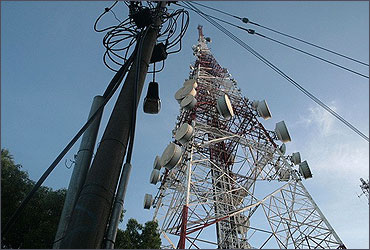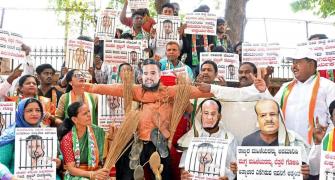 The Department of Telecommunications is planning to give more powers to the telecom regulator, Telecom Regulatory Authority of India, in the new telecom policy, including the power to impose financial penalties on the erring telecom service providers.
The Department of Telecommunications is planning to give more powers to the telecom regulator, Telecom Regulatory Authority of India, in the new telecom policy, including the power to impose financial penalties on the erring telecom service providers.
"There is a need for a strong and an independent regulator with comprehensive powers and clear authority to effectively perform its function," DoT said in the draft for NTP-11, which will be officially released by Communications and IT minister Kapil Sibal on Monday. The draft will then be place for further consultations and discussions before the final formulation.
Currently, DoT has the authority of imposing penalties on the telcos, while Trai can give its recommendations on penalties or termination of licence, and the final decision rests with the DoT.
A senior official from the DoT said the department was already working on the proposal for amendment in the Trai Act to give the regulator more powers and a change in the criteria for selection of chairperson, from five years to current three years, and other members of Trai. All these proposals are expected to be included in the NTP-11.
Earlier in a letter, Sibal had asked DoT to consider giving Trai quasi-judicial powers to adjudicate on penalties imposed by the department on service providers. "The department may like to vest such powers in the Trai, which is a statutory authority, entitled to regulate the conduct of telecom service providers," Sibal said.
A quasi-judicial body has powers similar to a court of law or judge, which enables it to impose legal penalties, give orders or judgements.
The DoT has been working on the modalities of the new policy after a decade of NTP in 1999. The need for a new policy assumed importance following the alleged 2G spectrum controversy, under which the former communications and IT minister, A Raja, and other corporate officials are under judicial custody.
The draft plan will give forth the views of the government on sharing of spectrum amongst operators, introduction of mobile virtual network operator, setting up of a spectrum committee to review use of spectrum and a uniform licence fee across various services amongst others.
The new policy will also spell out the new norms for mergers and acquisitions, enhancing rural coverage, spectrum allocation among other things.







